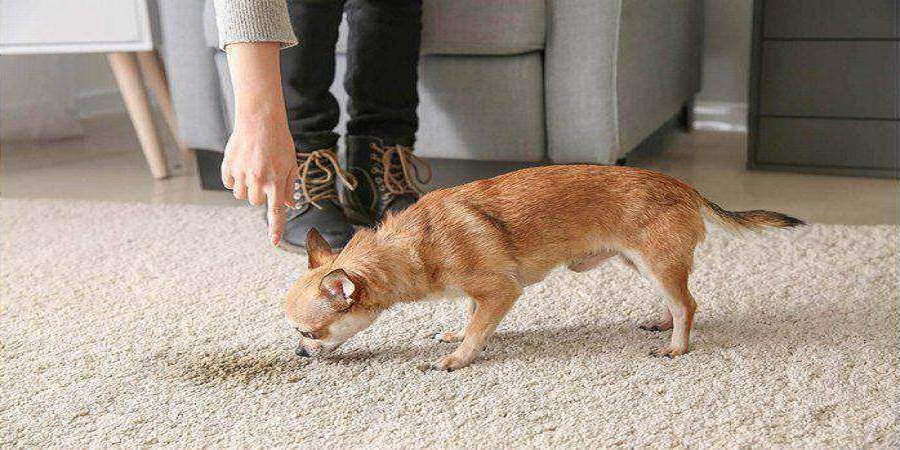Along with the rise of modern office culture, diversity, and gender acceptability, a new phenomenon has emerged in the form of office pets. Many offices these days are even adding their pets to their team pages or describing them as their team mascots. While this can be good for team morale, it can also keep the commercial cleaning team busy if the dogs aren’t proficiently toilet trained.
Your carpets can take more than their fair share of abuse, including mud, dirt, grime, and staining. Carpet cleaning is needed to get them back looking as they should, prevent further damage, and reduce their lifetime.
One type of stain found in many homes and (now some offices), given our love of pets, is staining from pet urine. Most pets are lovable creatures ranging from tiny kittens all the way up to full-grown giant dogs like Dobermans, and whilst they may all differ in size, they all share one natural function: the need to pee.
Of course, many adult pets will have complete control over their bladders, and the likelihood of their urine ending up on your carpets is negligible. However, even these pets may occasionally have an accident due to illness or simply getting overexcited. Obviously, with pups and kittens still learning that the place to urinate is outside or in a litter tray, the risk of urine on carpets is much greater.
The risk to your carpet from pet urine is so great because it does more than just leave a wet patch on it. The first danger is that you think it only covers a small area. However, urine will not just soak down into the fibres, but it will also spread out.
In addition, pet urine will reach deep down and soak into the carpet’s backing. Once there, it can start to cause the backing to separate itself from the carpet fibres, as well as cause issues with the underlay and even the flooring underneath.
Pet urine will contain many chemicals, leading us to another danger: it interacts with the dyes within the carpet fibres. This can cause discolouration, and in the worst cases, a bleaching effect occurs, meaning that patches form across the carpet.
Finally, if the urine remains within the fibres of your carpets, in addition to the visible damage, it is likely to start creating horrible odours that are not only unpleasant for you and anyone who enters your home but may also encourage your pet to urinate there again.
The most obvious key to avoiding all of these issues is ensuring that your pet is not only educated about where they should urinate but also given plenty of opportunity to do so. Even well-trained pets cannot go hours on end without urinating, and it is also dangerous for their urinary system if they always have to hold it in.
If an accident should occur try to soak up as much as you can immediately but do not rub the carpet as this simply spreads the urine. Instead, blot it up using absorbent paper towels. Once it is soaked up, use mild carpet cleaner to remove any stains which might have been created.
There may also come a point when you decide that despite your best efforts, the stains and the odour from your pet’s urine are too much, and therefore the next step is to call in a team of professional carpet cleaners. Not only can they clean where the urine is but also give the carpets throughout your home a proper clean to maintain them and bring them back looking as close to new as possible.

